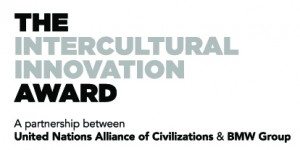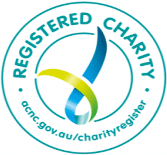Article by Priscilla Brice-Weller and Yin Paradies | First Published March 8, 2012 for Right Now magazine
Anyone living in Australia who keeps up with current affairs would have noticed a recent increase in the amount of discussion around racism in both mainstream and social media. Everything has been covered from statements by politicians to slip-ups by sportspeople, through to the bigger questions about racism in Australia, including:
“Is Australia a racist country?”
(Yes and no, some people have racist attitudes and some people don’t)
“Is Australia more or less racist than other countries?”
(It isn’t a competition; racism is rife throughout the world. Australia is more tolerant than many countries but less so than some)
“Should [public figure] be sacked for racism?”
(Yes, but shouldn’t we be asking why our public figures are engaging in racism in the first place?)
Such questions waft up like a bad smell at any mention of racism. Initially they are healthy questions for a country to ask itself – it shows that people are willing to self-reflect and learn from their collective mistakes. But they don’t really aid people’s self-understanding. Nor does it progress the debate about racism in Australia or encourage people to act, because it avoids the true complexity of racism in a multicultural country such as Australia.
Instead, we need a renewed commitment to a “fair go” for all Australians; an inspiring vision of the sort of country we could become, including an inclusive form of national identity; and unflinching recognition that racial prejudice is a harsh reality in Australia. People’s values and views on cultural diversity determine which approaches will work best for them.
Most Australians would agree that the desire for a “fair go” or equality for all is a shared national goal. Some of us have become cynical of clichéd terms such as “mateship” and “fair go”, but the sentiment remains. This sentiment is shared by the fifty percent of Australians who are positive about cultural diversity.
Most people who believe in the merits of multiculturalism are not confident discussing issues of race, racism or anti-racism. Some cope with this by avoiding the ‘R’ word altogether, others use political correctness as a crutch to avoid robust discussion, and yet others become angry and blame politicians, the media – anyone else but themselves – for the racism in this country.
Organisations like All Together Now and the Victorian Health Promotion Foundation (VicHealth) are working to help people understand the harsh reality of racism in Australia, while at the same time promoting the confidence and ability to take action to combat racism. This work is based on the fact that racism is not an insurmountable problem, especially if the majority of people are prepared to act!
To progress debate about racism in Australia among people who are positive about cultural diversity, try starting a discussion with one of these questions:
“What are the subtleties of racism?”
“What effect does racism have on individuals and society?”
“Rather than solely focusing on addressing inequality, how can we tackle racism as an underlying cause?”
“What can we do as individuals to prevent racism?”
The other half of Australians – the forty percent who are at best ambivalent about cultural diversity and the ten percent or so who are openly racist – tend to deny that racism exists. They are invested in maintaining the status quo (although, it is important to note that not all individuals with these attitudes are Anglo-Australians, nor do all Anglo-Australians share these attitudes).
One may recognise people in this group as those that start sentences with “I’m not racist, but…” and proclaim that those who think multiculturalism and diversity benefit Australia are, in fact, anti-white and anti-free speech (ironically trying to suppress a valid form of free speech).
People in this group need to be provoked into action to reduce or cease their destructive behaviour. The most effective conversation that can ensure this happens is for somebody to empathetically but firmly disagree with any person they witness saying something racist (providing it is safe for them to do so). This can include dispelling false beliefs and pointing out inconsistencies (such as the free speech example above). Australian research shows that people with racist attitudes partly justify their behaviour by overestimating those around them who share their view. So, honest and forthright disagreement is vital to changing attitudes and improving behaviour.
Again this is why is it important for bystanders to stand up and act – without timely and direct intervention the racist behaviour will continue. Acting is more effective for those who know the person engaging in racist behaviour, or if they are from the same cultural background as the perpetrator. Try starting with one of these:
“It’s not funny, nobody is laughing. Why did you say that?”
“I thought you believed in a fair go! Why do you say that?”
“It makes me uncomfortable to hear you say that, what do you really mean?”
There is an opportunity right now, while racism is being discussed widely in Australian society, to move towards more constructive self-reflection on this topic. Ultimately, this is what will lead to action and create new social norms of respect and inclusion for all.
Changing the conversation requires action from individuals, business, government and community sector organisations alike. To this end the Australian Human Rights Commission is currently undertaking a national consultation which will result in a National Anti-Racism Partnership and Strategy, due to be launched later this year.
Added to this is a remarkably small number of community sector organisations running underfunded and under-supported anti-racism programs. This work is vital in promoting the prevention of racism because unlike government initiatives, NGOs are able to promote courageous messages that get to the heart of the matter. While this work is generally evidence-based and effective, it is a drop in the ocean compared with what could be achieved if more philanthropists and foundations, large corporations and the media industry added their support.
It is only through collective and creative strategies that we can progress the discussion and debate about racism in Australia. Let each of us take seriously our personal responsibility to create constructive conversations about racism in Australian society.
Priscilla Brice-Weller is the Founder and Managing Director of All Together Now, the only national not-for-profit organisation working solely to address racism in Australia. Please see www.alltogethernow.org.au for further information about All Together Now’s work.
Yin Paradies is a non-executive Director at All Together Now and Senior Research Fellow at the University of Melbourne. He is an international expert in the social, economic and health impacts of racism as well as anti-racism theory, policy and practice.


